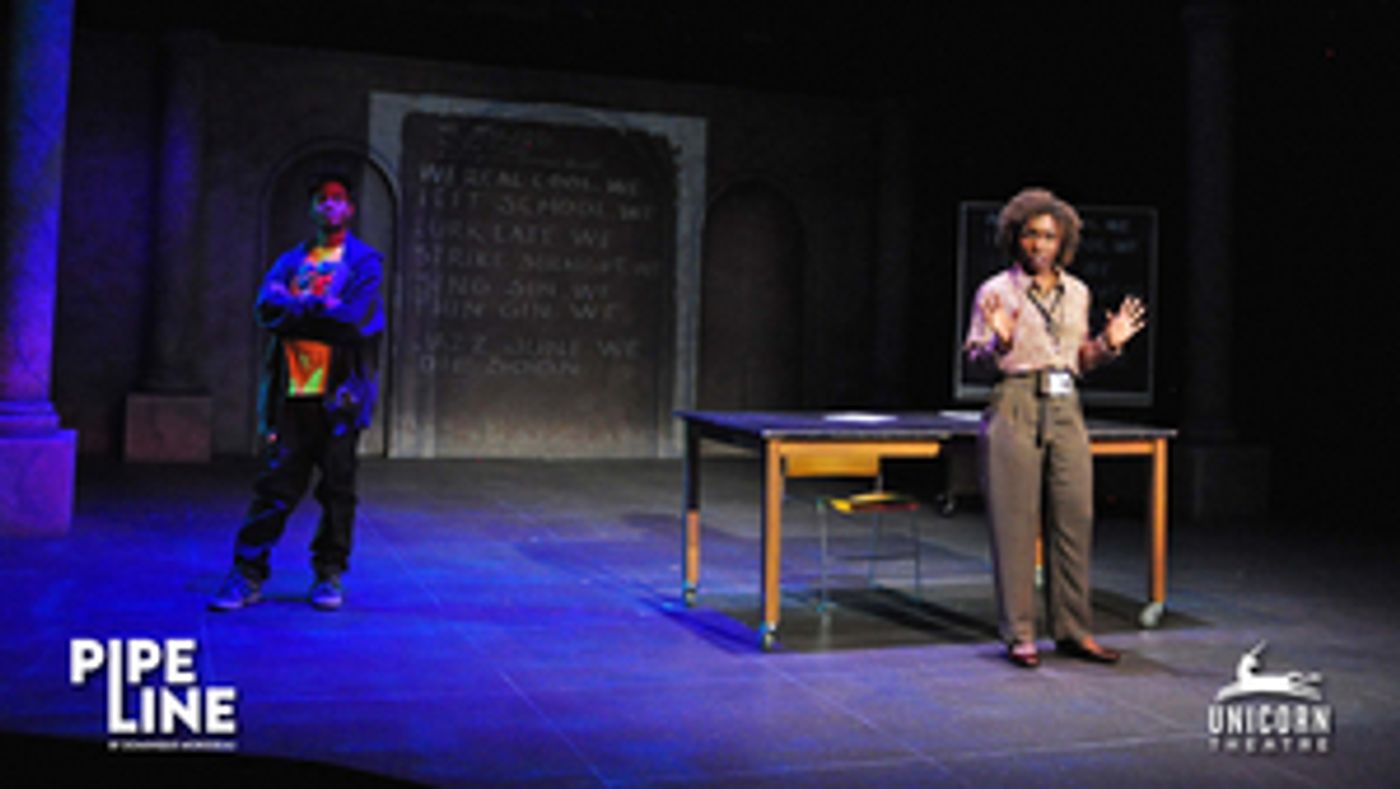Review: PIPELINE at Unicorn
Harsh truths and questions in this Dominique Morisseau drama

Dominique Morisseau is a Detroit-based playwright and actress who first began writing plays due to a lack of roles available for her. Since that time, she has created nine plays, won considerable acclaim, and become one of the most produced playwrights in the country. Pipeline, currently in production at the Unicorn Theatre, is one of her more recent works, and as such reflects a certain timeliness as it asks questions that we have been struggling with more than ever.
Nya (Chioma Anyanwu) is a hard-working English teacher at a public school in a rough neighborhood, doing everything she can to prepare her students for the outside world. At the same time, she sends her own son Omari (Raheem Fielder-Bey) to a tony private school upstate. When an incident between Omari and a teacher threatens to end his shot at a prosperous future, she must face the decisions she and her ex-husband Xavier (Keenan Ramos) have made for his upbringing, and for his future.
This is a very absorbing drama. The performers all turn in excellent, nuanced performances, with Nya's performer carrying the weight of the story. Fielder-Bey and Jackie Price (as Omari's girlfriend Jasmine) turn in very good performances as adolescents despite being rather older. Cathy Barnett as Laurie is an old-school, "tough as nails" teacher at Nya's school, who through the course of the show offers a bit of insight into the story from the teacher's side of things. Yorke Fryer as security guard Dun is a good man working in near-impossible circumstances, and Ramos as Xavier is suitably chilly as a father whose idea of paternal duty is signing a check every month.
The school-to-prison pipeline that funnels young black men into a life of institutional incarceration is of course well known. It is born of many things: the for-profit prison system, attitudes of suspicion towards black youth that regard a child as a danger, a long-earned mistrust of the institutions that purport to help them. "Pipeline" is about a family's attempts to escape that fate for their own child, and how even then the scars of a broken system leave their mark on the young people affected by it. Even now, as the protest against critical race theory (a protest which essentially boils down to, 'don't make us uncomfortable') rages on, it is abundantly clear that what we need is more discomfort, for it is in facing the things we don't wish to that we can best do something about them. Nobody ever fixed a broken system by pretending it wasn't there.
One of the (many) compelling notes in Ms. Morisseau's work is the use of the poem "We Real Cool" by Gwendolyn Brooks. Morisseau though Nya breaks the poem down for us, boring through the outer swagger to the bleakness within. This reviewer can think of no better way to end this, then to render the poem in full:
"THE POOL PLAYERS.
SEVEN AT THE GOLDEN SHOVEL
We real cool. We
Left school. We
Lurk late. We
Strike straight. We
Sing sin. We
Thin gin. We
Jazz June. We
Die soon."
Reader Reviews
Videos

